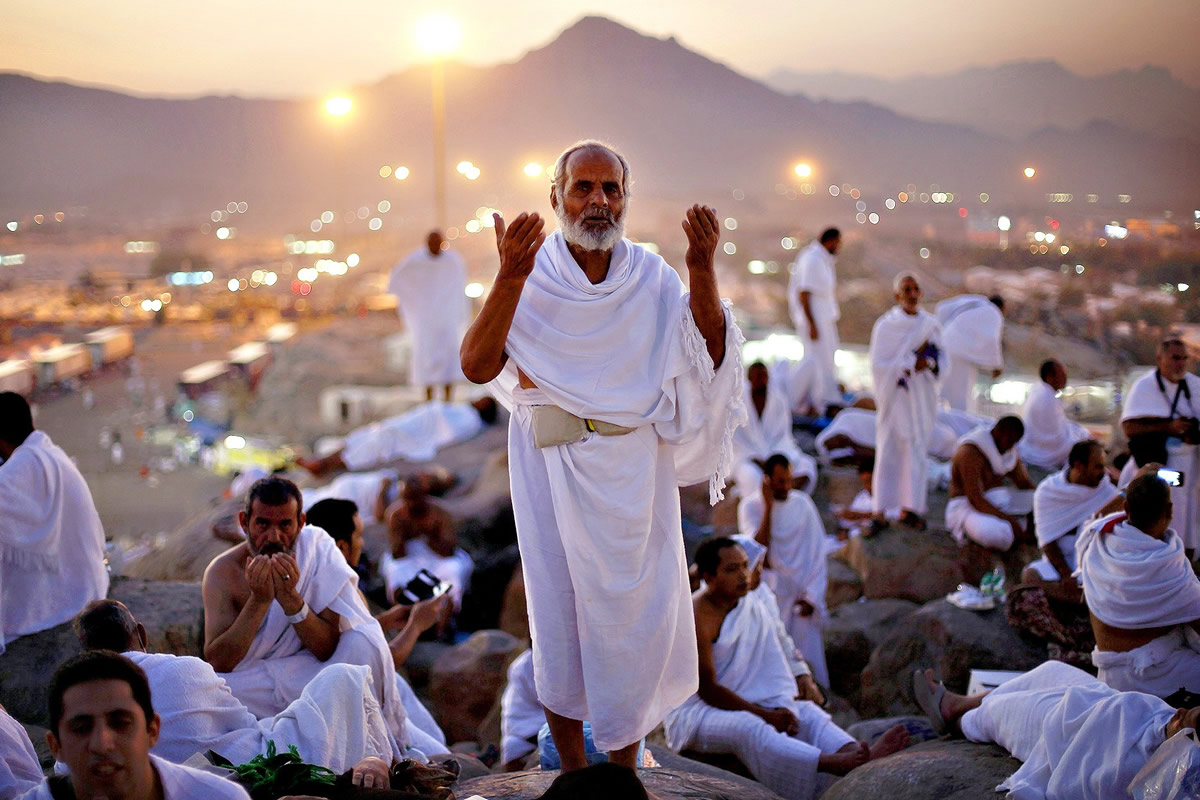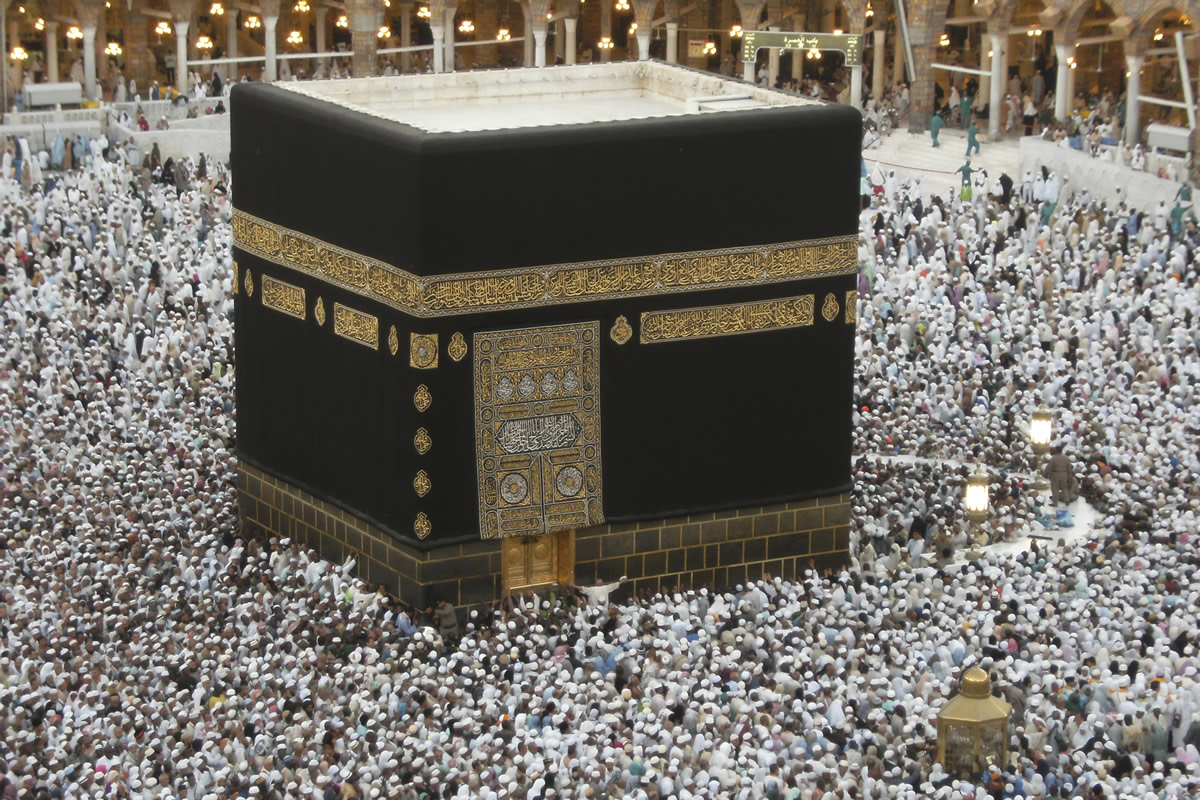

The Significance of Hajj
The pilgrimage to Mecca, known as Hajj, is an obligation for all Muslims at least once in their lives, if they are physically and financially able to do so. Hajj is the fifth and final pillar of Islam. Mecca is the direction which Muslims face when they pray 5 times a day, and the home of the Kaaba, the most famous and revered structure in Islam.
The 5-day period of Hajj begins in the first ten days of the last month of the Islamic lunar year, and it has been performed from the time of Prophet Abraham. At present, Hajj is performed yearly by over two million people from various nations, ethnicities, and social classes. Throughout the acts of Hajj, pilgrims known as hujjaj, pray for God’s forgiveness and seek the opportunity to renew themselves and have a fresh start.
Prophet Mohammed (peace be upon him) said: “The pilgrims performing Hajj and its rituals are the guests of God; if they call upon Him He will answer them, and if they ask Him for forgiveness He will forgive them.”
Follow along this timeline to learn more about the rituals and the experience of hujjaj. Thank you for visiting!
Have questions? Click here to fill out our form, and we’ll get back to you right away.
Curious about Islam? Click here to learn more about us!
Day 1: The 8th of Dhul-Hijjah
Before the pilgrims arrive to the city of Makkah, they have to enter into a state of ihram. Men must wear two unstitched cloths, and women wear loose-fitting and plain clothes without any jewelry and symbols of status. In addition to the clothing, pilgrims also have to follow specific guidelines to enhance the sanctity of the moment and to help mentally transition into the days to come.
Not getting angry, staying away from argumentation and vain conversation, and remembering God through simple phrases are just a few of the guidelines when a pilgrim is in ihram. In the eyes of God, we are judged not by our clothing, the amount of money we have in our bank account, our lineage, or our titles – but by our deeds and the connection we have with Him. This simple dress is meant to remind us all, that in His eyes, we are equal.
After praying Fajr, or the dawn prayer, in Makkah, pilgrims do the short 5-mile trek to the sprawling tent-city of Mina by bus, car, or on foot. Once they arrive, they spend the rest of their day remembering God and praying. Pilgrims will spend the first night of Hajj in their comfortable tents with over 2M neighbors in an area as small as 12.5 sq. miles.
In this first night, all pilgrims who have dreamed of these upcoming days will be getting ready for the rigorous days ahead filled with prayers, camaraderie, the desert heat, and an experience they will retell of for years to come.
Have questions? Click here to fill out our form, and we’ll get back to you right away.
Curious about Islam? Click here to learn more about us!
Day 2: Forgiveness
Known as the day of Arafah, the second day of Hajj is considered one of the most important days in the Islamic calendar. After pilgrims perform Fajr (dawn prayer) in Mina, they wait until sunrise, before walking or taking transport to the plains of Arafah, directly east of Mecca, where they will pray both Dhuhr and Asr (midday and afternoon prayers).
Prophet Mohammed (peace be upon him) delivered his last sermon on Mount Arafat, a small hill in the middle of the plain. The entire day of Arafat, from dawn to dusk, is spent in dedicated supplication, adoration, prayer, and seeking forgiveness from the Creator. We know it as a day of complete and unconditional forgiveness who’s blessings are known by no limit.
For Muslims, we also know it to be the day when God completed the religion of Islam, with the verse:
“This day I have perfected for you your religion and completed My favor upon you and have approved for you Islam as religion.” [Holy Quran 5:3]
Throughout the world, Muslims who are not performing Hajj, will fast this day of great significance seeking out the mercy of our Lord.
The Hujjaj will stay at Arafat until sunset, after which they will walk 6 miles or take transport to the area of Muzdalifah where they will pray Maghrib and Isha (evening and night prayers). Without tents or any shelter, they will spend the night under the stars with their fellow hujjaj. Because of the sheer amount of people in the area, many will go without sleep, and will either pray or spend their night attempting conversation with hujjaj from all corners of the world.
This is also their opportunity to collect 70 small pebbles in preparation for the following days where they will throw them at pillars representing Satan.
Have questions? Click here to fill out our form, and we’ll get back to you right away.
Curious about Islam? Click here to learn more about us!
Day 3: Stoning Satan
The third day of Hajj is considered to be the most difficult day of the pilgrimage. Around the world on this day, Muslims who aren’t making the pilgrimage celebrate Eid Ul-Adha, known as the festival of sacrifice, and one of two Muslim holidays.
The hujjaj will pray Fajr (dawn prayer), in Muzdalifah, and then make the trip back to Mina. Afterwards, they will walk to the areas of three gigantic pillars, each representing an attempt made by Satan to dissuade the Prophet Abraham from obeying God’s command to sacrifice his son Ishmael.
On his way to carrying out God’s Will, Satan repeatedly tried to distract him by appealing to his emotions, at which the Angel Gabriel instructed him to throw pebbles at Satan.
A continuous example to Muslims, each of Prophet Abraham’s stories have strong meaning and opportunities for self-reflection. More than just throwing pebbles at Satan, what Prophet Abraham did was set his own desires aside to follow the Will of God. For him, and for us, throwing pebbles at Satan or his representation is an exercise of faith, and a reminder for us all that when Satan comes to us, it is our responsibility and our duty to cast him aside from our presence and from our mind.
Traditionally, once the hujjaj have finished throwing their stones, they would sacrifice an animal per household. However, because of the sheer amount of people, the government takes on this responsibility.
Continuing the story of Prophet Ibrahim, when he went to sacrifice his son to follow God’s command, God replaced his son with a ram to be sacrificed instead. Muslims sacrifice an animal in honor of Prophet Abraham’s actions and his commitment to following the commands of God, no matter how difficult they may seem.
After throwing their stones, men shave their heads or trim their hair and return to their regular clothes. Women, can snip a bit of their hair, but aren’t required to do so. Afterwards, the hujjaj travel to Makkah to circle the Kaaba seven times, and perform Sa’ee, which is the reenactment of Hagar looking for help for her infant son Ishmael between the hills of Safa and Marwa. After performing these rites, they return to Mina for the night.
Have questions? Click here to fill out our form, and we’ll get back to you right away.
Curious about Islam? Click here to learn more about us!
Day 4: the 11th of Dhul-Hijjah
The most difficult parts of hajj are now complete. On the fourth day of Hajj, hujjaj will stay in Mina worshipping and remembering God, and stone the pillars symbolic of Satan once again. This time, hujjaj will not stone only one of the three pillars, but will throw seven stones at each, by starting with the smallest and working their way up.
Have questions? Click here to fill out our form, and we’ll get back to you right away.
Curious about Islam? Click here to learn more about us!
Day 5: the 12th of Dhul-Hijjah
The beginning of this last day is very similar to the day before. Hujjaj will spend the day in Mina, and then, go to the jamaraat (area of the three pillars) to throw their stones.
After completing this ritual, hujjaj may leave Mina to travel back to Makkah, where they will perform the final ritual of circling the Kaaba seven times. After this, their Hajj is complete!
Many Muslims will stay an extra few days in Makkah, travel to Madinah (Prophet Mohammed’s city), or catch a flight back home.
Apart from completing one of the five pillars of Islam, the spiritual significance of Hajj for a Muslim is complete forgiveness, and a renewed start.
The Prophet Mohammed said: “Whoever performs Hajj and does not commit any evil will go back free of sin as on the day his mother bore him”.
During Hajj, Muslims completed many rituals, the same as Muslims have completed for over 1,400 years. They commemorated the struggle of Hagar, the sacrifice of Abraham, and the day Islam was made complete. They worshipped day and night in the middle of the desert alongside millions from different cultures and backgrounds, all with one purpose in mind – to honor and glorify God.
It will be an experience they will retell over and over again for years to come, and it will be a collection of stories they will never grow tired of.
When you meet a Muslim who has completed Hajj, the traditional greeting is “Hajj Mubarak!” or congratulations on your Hajj! Every culture around the world welcomes hujjaj in their own way, including gifts, parties, and plenty of hugs.
Do you have questions about Hajj or about Islam? Click the live chat button, or send us a message using the form below. We’d love to hear from you!
Have questions? Click here to fill out our form, and we’ll get back to you right away.
Curious about Islam? Click here to learn more about us!












